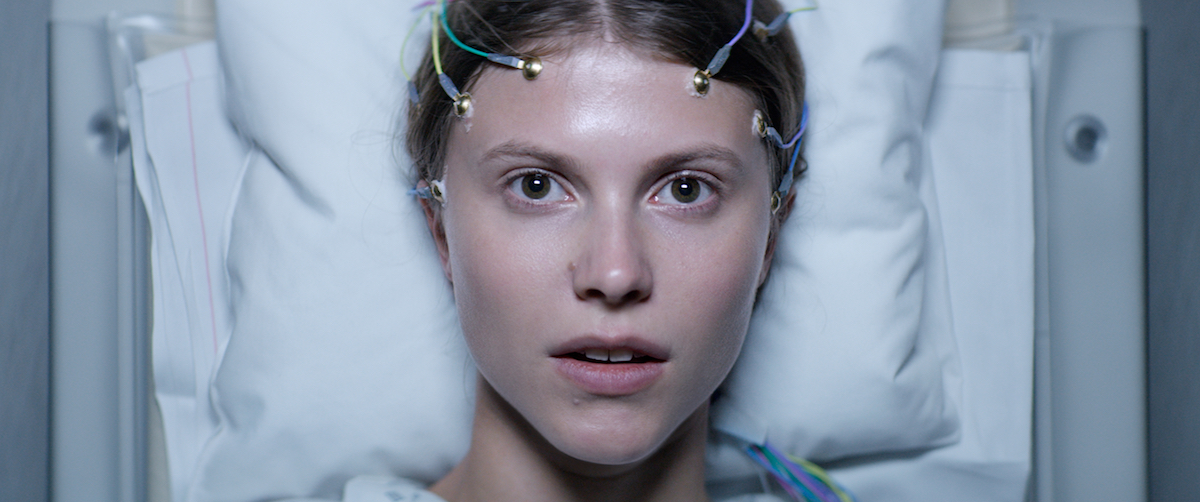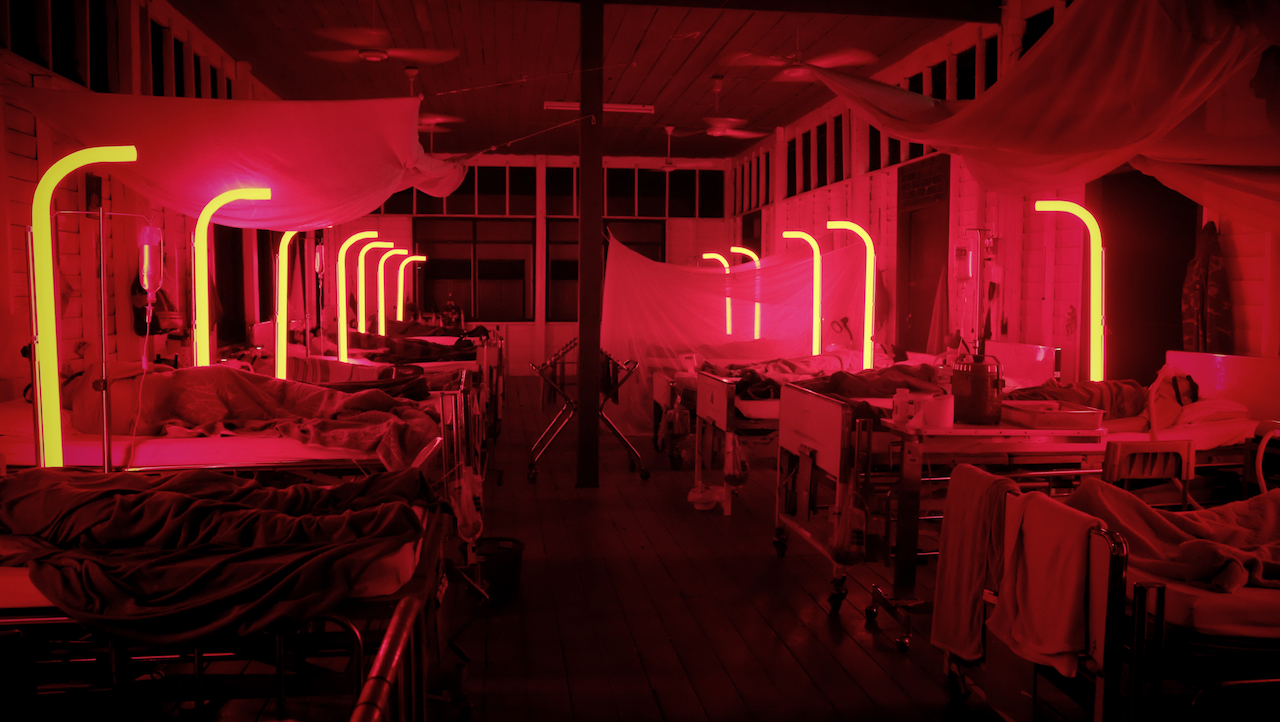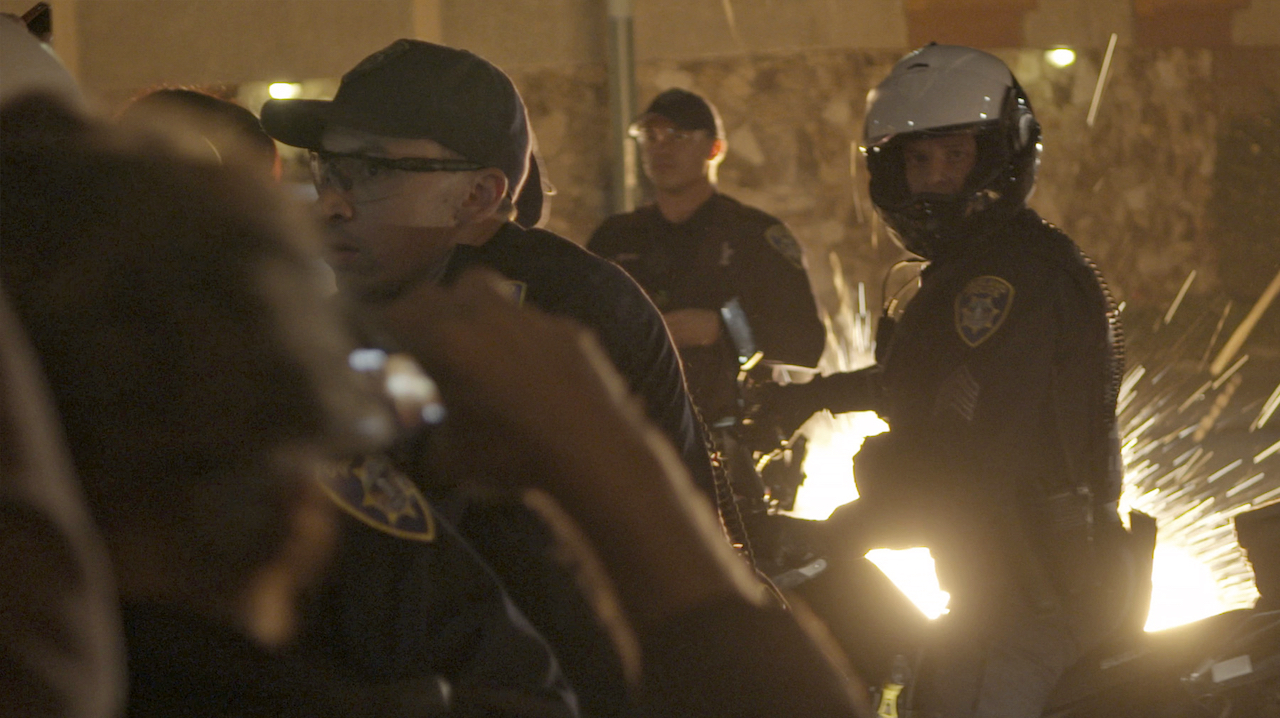Films: January 2018

Eili Harboe plays the title character in Joachim Trier’s Thelma. 2017. Feature film. 116 min. Courtesy The Orchard.
The month’s most pressing film releases, as selected by Genevieve Jacobson.
Thelma
Directed by Joachim Trier
Debuts on iTunes January 16
Thelma breathes new life into one of the foundational experiences that underpin the superhero origin story: trauma. Hypnotic and sensual, Thelma is an uncategorizable tale of a woman’s sexual awakening that links trauma and its embodied manifestations to the supernatural. Trier deploys the generic tools of horror, fairytale, and psychological thriller to evoke the disorienting experience of self-discovery, and the burden of knowledge that it bears.
The feature-length documentary will have its world premiere at 2018 Sundance Film Festival.
Our New President
Directed by Maxim Pozdorovkin
Plays at Sundance Film Festival January 18-20, 25-26
“An ordinary kid from Brooklyn, a troubled teenager, did what every American dreams of and became president. America has found its face and he looks like Uncle Sam.” These are the bizarre words of a Russian newscaster reporting on the US election of 2016 — one of many odd characterizations of Donald Trump in this archival documentary, which draws exclusively from state-controlled political programming, YouTube videos, and, of course, fake news. In Pozdorovkin’s profile of contemporary Russian media, devoted support of Trump borders disturbingly on cultish exaltation.
The Lure
Directed by Agnieszka Smoczyńska
Available to stream on FilmStruck January 18
The female cannibal has reached an unexpected level of exposure lately, in films like Raw and series such as The Walking Dead. Now comes a kitschy twisted mermaid-musical-horror film, which takes Hans Christian Andersen’s “The Little Mermaid” and turns it on its head. The classic fairy tale about an unnamed mermaid willing to sacrifice her voice for love takes on, in the hands of this Polish director, unrivaled, flesh-eating ferocity.
A Ciambra
Directed by Jonas Carpignano
In theaters January 19
In the small town in southern Italy where Carpignano lives and works, there’s only one thing to do when a car disappears: “Go to the gypsies.” It was with the intention of paying ransom money for his stolen Fiat that the director first met the Romani teenager Pio Amato, who stars in this deeply humanistic story of adolescence, identity, and the responsibilities of manhood, based on the everyday dramas of Pio’s own life.

SleepCinemaHotel
Created by Apichatpong Weerasethakul
Plays at Rotterdam International Film Festival from January 25-28
For this unruffled Thai director, cinema is a derivative of dreaming, an open form whose beauty does not hinge upon understanding. With SleepCinemaHotel, Weerasethakul shifts from the screen to an immersive environment; guests attending this film festival can book a room in his hotel of hypnagogic images, where surreal projections permeate every living space, playing like a serene accompaniment to your meals, naps, and showers. SleepCinemaHotel collapses the space between waking and dreaming, sleep and cinema, and lets you get lost in something other than thoughts.

The Force
Directed by Peter Nicks
Available to stream internationally on Netflix January 29
Nicks’ documentary follows the Oakland police department as its new chief attempts to reckon with, and answer to, a legacy of rampant misconduct and civil rights abuses. Using startlingly, almost unbearably intimate close-up, Nicks catches moments of vulnerability on officers’ faces that reveal the humanity — and the fallibility — behind institutionalized power. The Force proves to be a persuasive example of cinema as a conduit for empathy, one sometimes so effective that it overrides our staunch resistance to identification.